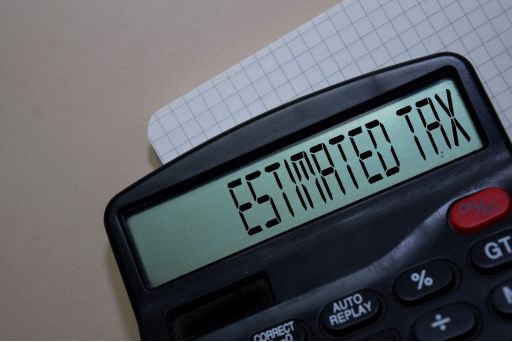In today’s global economy, understanding beneficial ownership information report has become paramount in ensuring transparency, combating financial crimes, and fostering accountability. This article delves into aspects of beneficial ownership, shedding light on its significance, intricacies, and implications within various industries and regulatory frameworks.
This comprehensive FAQ aims to demystify the often complex and misunderstood concept of beneficial ownership Information reporting. From defining the core principles to navigating the legal landscape and exploring its practical applications, this article serves as a go-to resource for individuals, businesses, policymakers, and professionals seeking clarity in an evolving regulatory environment.

What is Beneficial Ownership Information Reporting?
Beneficial Ownership Information Reporting refers to the process of disclosing and documenting the individuals who ultimately own or control a legal entity, such as a company or trust. The concept is crucial for promoting transparency and preventing illicit financial activities, such as money laundering, tax evasion, corruption, human and drug trafficking, as well as fraudulent actions against employees, customers, and other businesses.
The Beneficial Ownership Information Reporting Rule entails a new obligation established by the Corporate Transparency Act and overseen by the Financial Crimes Enforcement Network (FinCEN), operating under the United States Department of the Treasury.
The reporting of beneficial ownership information aligns with the persistent endeavors of the U.S. government to discourage corporations from concealing their actions or deriving benefit from actions that inflict harm on others.
By providing this information through the beneficial ownership information report, companies aid authorities in maintaining the integrity of financial systems and preventing the misuse of corporate entities for illegal purposes.
What is Beneficial Ownership?
Beneficial ownership pertains to individuals who ultimately reap the advantages of possessing or directing a specific asset, property, or business, regardless of the legal ownership being held by another entity or individual. A beneficial owner could possess a substantial stake or vested interest in a company, thereby having authority or entitlement over its assets, profits, or decision-making, regardless of official ownership documentation.
As per the guidelines of the Corporate Transparency Act, a beneficial owner is an individual who, either directly or indirectly, satisfies one of the following criteria: (1) holds or supervises a minimum of 25% of the ownership interests within the company, or (2) exerts notable influence or control over the company’s operational aspects. Instances demonstrating significant control might include:
- A key decision-maker within the reporting company
- A high-ranking executive (like president, chief executive officer, chief financial officer, general counsel, chief operating officer, or individuals with comparable roles)
- An individual possessing the authority to appoint or dismiss specific officers or a majority of the directors (or similar governing body) of the company
Why Must Companies Report Beneficial Ownership to the U.S. Department of the Treasury?
Companies are required to report beneficial ownership information to the U.S. Department of the Treasury for several crucial reasons primarily centered around transparency, compliance, and the prevention of financial crimes.
1. Transparency and Accountability
Reporting beneficial ownership information promotes transparency within corporate structures. It enables authorities to identify individuals who have substantial control or benefit from a company, ensuring transparency in ownership and decision-making processes.
2. Combating Financial Crimes
Mandating the disclosure of beneficial ownership information helps in the prevention and detection of financial crimes, such as money laundering, corruption, tax evasion, terrorist financing, and other illicit activities. By understanding who stands behind a company, authorities can track and prevent the misuse of corporate entities for unlawful purposes.
3. Enhanced Regulatory Oversight
Access to beneficial ownership details allows regulatory bodies to monitor and oversee businesses more effectively. It aids in ensuring compliance with laws and regulations related to corporate governance, financial integrity, and anti-money laundering measures.
4. National Security and Law Enforcement
Disclosure of beneficial ownership information assists in national security and law enforcement efforts. It enables authorities to investigate and address potential threats, illegal activities, or entities that might pose risks to national security or engage in criminal behavior.
5. International Standards and Collaboration
Reporting beneficial ownership information aligns with global standards aimed at combating financial crimes. Many countries are moving toward similar transparency requirements, and exchanging such information between countries can enhance collaboration in preventing cross-border illicit financial activities.

Who Can Access Beneficial Ownership Information?
Under the Corporate Transparency Act, access to beneficial ownership information is regulated and restricted to specific entities and officials with authorized purposes related to national security, intelligence, law enforcement, and certain financial institutions under specific circumstances.
Authorized entities that can access this information include federal, state, local, and tribal officials, as well as select foreign officials who must request access through a U.S. federal government agency. These entities can obtain beneficial ownership information when it’s necessary for activities associated with national security, intelligence operations, or law enforcement.
Financial institutions may access beneficial ownership information in certain situations but require the explicit consent of the reporting company. Additionally, the regulators of these financial institutions will have access to beneficial ownership information as part of their supervisory duties.
To ensure the protection and confidentiality of this sensitive information, FinCEN (Financial Crimes Enforcement Network) published regulations on December 22, 2023, governing the access to and safeguarding of beneficial ownership data. All reported beneficial ownership information will be securely stored in a non-public database, utilizing robust information security measures typical of those used by the federal government to protect sensitive yet unclassified systems at the highest security levels.
FinCEN will work closely with authorized entities permitted access to this information, emphasizing their responsibilities to use the reported data solely for authorized purposes. They will also be required to handle this information in a manner that upholds its security and confidentiality, ensuring its protection against unauthorized use or disclosure.
Which Companies are Required to Submit a Beneficial Ownership Report?
Companies that need to submit Beneficial Ownership Information Reports (BOIRs) include two categories of businesses:
- Domestic reporting companies – These encompass corporations, limited liability companies (LLCs), and other entities established by filing with a state’s secretary of state or a similar office, governed by the laws of a state or Indian tribe.
- Foreign reporting companies – These consist of corporations, LLCs, and other entities established under a foreign country’s laws that are registered to conduct business in any U.S. state or Tribal jurisdiction.
Consequently, the beneficial ownership rule covers the majority of businesses operating within the United States, excluding domestic sole proprietorships or general partnerships. However, specific exemptions to the reporting requirements of beneficial ownership have been outlined. These exemptions encompass certain categories such as banks, credit unions, investment companies, insurance companies, and regulated public utilities.
What Do Companies Have to Report?
Details regarding the company required to report.
- Legal name
- Trade names, e.g., d/b/a names
- The present physical location of the primary business establishment within the U.S. (or, if abroad, the main site in the U.S. where business operations occur). Reporting entities are obliged to furnish a physical street address; submission of a P.O. box address is prohibited.
- Jurisdiction of formation or registration
- Taxpayer Identification Number (and, if issued by a foreign jurisdiction, the name of such jurisdiction).
- Information about Beneficial Owners
- For each individual Beneficial Owner
- Individual’s name
- Date of birth
- Residential address
- Identifying number from an image of an acceptable ID document, e.g., a passport or U.S. driver’s license, and name of issuing state or jurisdiction.
- For each individual Beneficial Owner
- If the Reporting Company was formed after January 1, 2024, they will need to provide information about the Company Applicant
- For each individual Company Applicant
- Individual’s name
- Date of birth
- Address
- For each individual Company Applicant
A Reporting Company may report a parent company’s name in lieu of information about its Beneficial Owners if its Beneficial Owners only hold their ownership interest in the Reporting Company through the parent company and the parent company is an exempt entity.
If the Company Applicant is involved in corporate formation (e.g., as an attorney), the business address may be used; otherwise, the residential address is required.
The identification number, obtained from an acceptable ID document such as a passport or U.S. driver’s license, along with the issuing state or jurisdiction, must be provided.
The Reporting Company bears the responsibility of reporting all the aforementioned information to FinCEN. Furthermore, the Reporting Company must authenticate the information received from its Beneficial Owners and Company Applicants before submitting it to FinCEN.

What Are the Penalties for Not Filing?
Failure to submit a Beneficial Ownership Information Report, which entails disclosing individuals controlling or owning the business, carries severe repercussions. A beneficial owner deliberately disregarding the reporting obligations or providing misleading information to the Financial Crimes Enforcement Network can face personal accountability. This includes both criminal and civil penalties under the Corporate Transparency Act.
Deliberate noncompliance may result in criminal repercussions such as imprisonment for a maximum of two years and/or fines reaching up to $10,000. Additionally, civil penalties of up to $500 per day can be imposed.
Even if a reporting company submits the report within the deadline, inaccuracies within the report may still result in penalties. Therefore, ensuring the accuracy of the filing is crucial. We offer assistance in simplifying the reporting and filing process to guarantee compliance with the law and accurate submissions.
What Is the Due Date for Submitting the Beneficial Ownership Information Report?
The implementation of the Beneficial Ownership Information Reporting Rule commenced on January 1, 2024. Thus, it’s crucial to familiarize yourself with the compliance prerequisites promptly. The filing deadline is contingent upon your business’s formation date.
In general, for business entities established before January 1, 2024, the deadline for filing is December 31, 2024. Those formed on or after January 1, 2024, are granted a 90-day window post-formation to file. Furthermore, entities that modify their formation documents on or after January 1, 2024, are required to submit a new report within 30 days.
Adhering to this requirement is crucial to avoid potential criminal and civil penalties for non-compliance. Penalties may include imprisonment for up to two years, a fine reaching $10,000, and/or a daily fine of up to $500.
Why Hire an Expert
Getting assistance from an expert for your Beneficial Ownership Information Report can be beneficial for several reasons:
- Complexity of Regulations: The rules and regulations concerning beneficial ownership can be intricate and challenging to navigate. An expert can offer clarity and ensure that you understand the requirements accurately.
- Accuracy and Compliance: Ensuring accuracy in reporting is vital to avoid penalties. Experts have the knowledge and experience to guide you through the process, minimizing errors and ensuring full compliance with the regulations.
- Deadline Management: Experts can help you manage deadlines effectively. They can keep track of filing deadlines, providing timely reminders and assistance to ensure you submit your report on time.
- Risk Mitigation: A professional’s guidance reduces the risk of non-compliance. They can help you avoid costly penalties, including fines or potential legal issues resulting from incorrect or late submissions.
- Customized Guidance: Each business may have unique circumstances affecting its beneficial ownership reporting. Experts can offer tailored advice specific to your situation, ensuring you meet the reporting requirements according to your business’s needs.
- Efficiency: Seeking help from experts streamlines the reporting process. They have the expertise to simplify complex procedures, making the entire reporting process more efficient and less time-consuming for you.
- Updated Knowledge: Experts stay updated with the latest regulatory changes. They can provide insights into any amendments or updates to regulations, ensuring your compliance remains up-to-date.
Filing a BOI Report Yourself
Beneficial Ownership Information Reporting refers to the disclosure of individuals who ultimately control or benefit from a business, even if not the legal owners. Complying with this reporting is essential to ensure transparency in business operations, prevent financial crimes, and adhere to regulatory requirements.
You can file the report online at boiefiling.fincen.gov/fileboir. For more details about how to file a BOI Report yourself, explore our guide.
Business owners may encounter difficulties in understanding the criteria for beneficial ownership and accurately documenting this information. Managing filing deadlines, keeping up with regulatory changes, and avoiding errors in submissions can also pose significant obstacles. Our team can help you file your BOI Report, stay compliant, and avoid penalties.

Get Expert Assistance from Vyde for Beneficial Ownership Information Reporting:
At Vyde, we understand the challenges businesses face in creating and managing their Beneficial Ownership Information Report. Our expert team is equipped to provide tailored guidance and streamline the reporting process for you. We ensure accuracy, compliance, and timely submissions, helping you navigate the complexities effortlessly. Don’t let the complexities of reporting burden you – reach out to Vyde for expert assistance in managing your Beneficial Ownership Information Report effectively.
Frequently Asked Questions:
What is Beneficial Ownership Information Reporting?
Beneficial Ownership Information Reporting involves disclosing and documenting individuals who ultimately own or control a legal entity, such as a company or trust. This process is crucial for promoting transparency, preventing financial crimes, and is governed by the Corporate Transparency Act, overseen by the Financial Crimes Enforcement Network (FinCEN) under the United States Department of the Treasury.
What is Beneficial Ownership?
Beneficial ownership refers to individuals who, regardless of official ownership documentation, reap the advantages of owning or directing a specific asset, property, or business. As defined by the Corporate Transparency Act, a beneficial owner is an individual who holds at least 25% ownership interests in a company or exerts notable influence or control over its operational aspects.
Why Must Companies Report Beneficial Ownership to the U.S. Department of the Treasury?
Companies are required to report beneficial ownership information to the U.S. Department of the Treasury to promote transparency, combat financial crimes, enhance regulatory oversight, ensure national security, and align with international standards. Reporting aids authorities in identifying individuals with substantial control over companies, preventing misuse for illegal purposes.
Who Can Access Beneficial Ownership Information?
Access to beneficial ownership information is regulated and restricted to authorized entities, including federal, state, local, and tribal officials, select foreign officials, and certain financial institutions under specific circumstances. Access is granted for purposes related to national security, intelligence, law enforcement, and requires authorization through a U.S. federal government agency.
What Are the Penalties for Not Filing a Beneficial Ownership Information Report?
Failure to submit a Beneficial Ownership Information Report can lead to severe criminal and civil penalties. Deliberate noncompliance may result in imprisonment for up to two years and fines up to $10,000. Even inaccuracies in a submitted report can incur civil penalties of up to $500 per day. It is crucial to ensure accurate filing to avoid legal consequences.

















